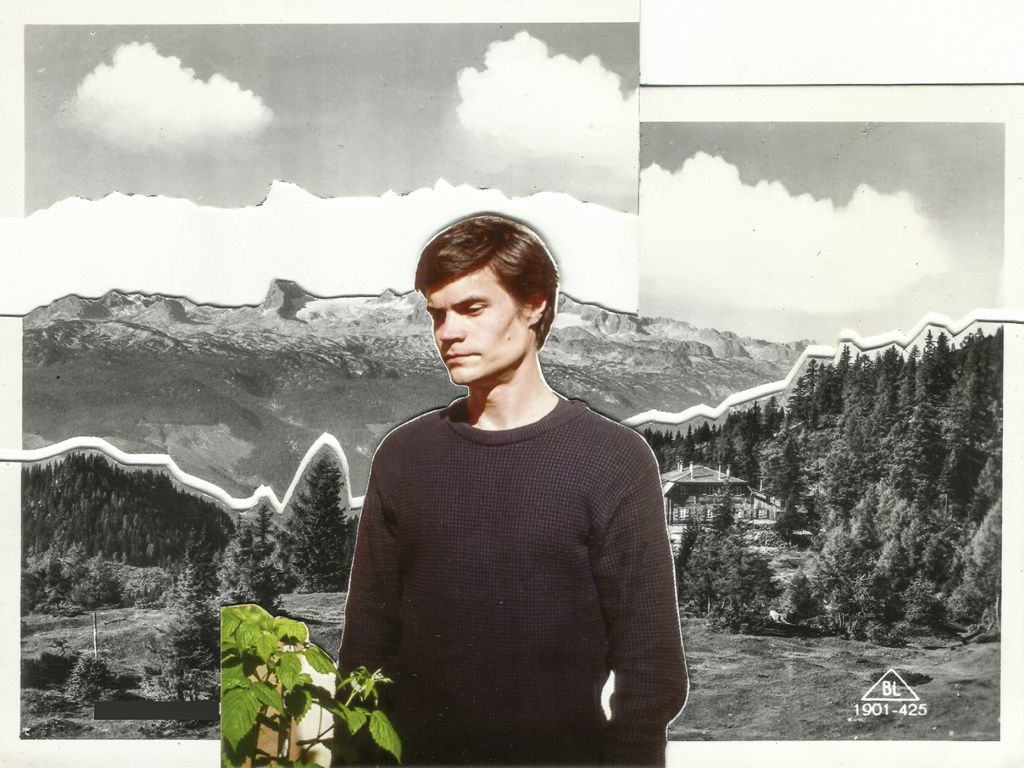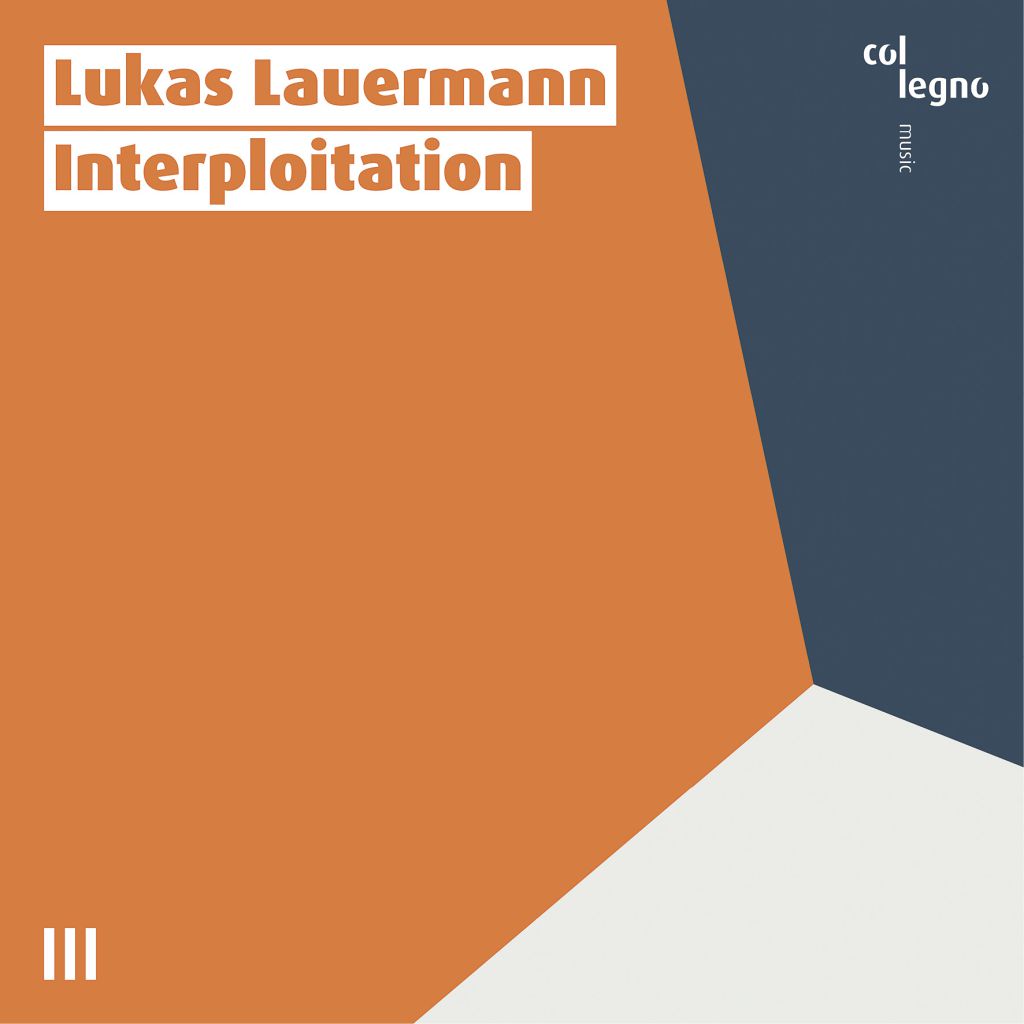Im November 2022 erschien das dritte Soloalbum des gefragten Künstlers unter dem Titel Interploitation. Ein radikaler Schritt des Ausnahme-Cellisten, der sich in seinem neuesten Werk ausschließlich dem elektronischen Klangkosmos verschreibt.
„Es ist ein bisschen vererbt“, verrät Lukas Lauermann seinen Zugang zur Musik. Sein Vater Herbert Lauermann ist selbst Komponist und war als Lehrender an der mdw tätig. Bereits früh kommt der gebürtige Wiener daher mit Musik in Kontakt. Mit sechs Jahren beginnt er mit dem Klavierunterricht, etwa drei Jahre danach folgt das Cello. „Mein Vater hat nie Druck ausgeübt, es war immer mein eigener Wunsch, mich mit Musik zu beschäftigen. Letztendlich ist es aber ein großes Glück, Eltern zu haben, die dich in deinem Berufswunsch unterstützen.“

Der Wunsch ist klar, der zukünftige Beruf soll eine künstlerische Ausrichtung haben. Lukas Lauermann denkt zunächst an eine Ausbildung zum Bühnenbildner, entscheidet sich aber schließlich für die mdw. „Zuerst hatte ich die Vorstellung, dass man nur an der mdw studieren kann, wenn man ein Wunderkind ist. Trotzdem habe ich einem IGP-Professor vorgespielt und mich anschließend ein Jahr intensiv auf die Aufnahmeprüfung vorbereitet.“ 2005 wird Lukas Lauermann für die Studien Musikpädagogik (IGP) Cello und Musikerziehung an der mdw zugelassen. „Es war toll, nach Wien zu kommen und auf Gleichgesinnte zu treffen. Während meiner Schulzeit in Stockerau war ich mit meinem Interesse an Musik immer alleine und plötzlich waren da andere, mit denen ich meine Leidenschaft teilen konnte.“
Ich hatte mehr das Bedürfnis selbst kreativ zu sein, als nur zu interpretieren.
Dass sein Fokus nicht im klassischen Bereich liegt, wird dem IGP-Studenten schnell klar. Er engagiert sich bereits zu Beginn seines Studiums in Band-Projekten – ein neuer künstlerischer Ansatz. „Ich hatte mehr das Bedürfnis selbst kreativ zu sein, als nur zu interpretieren. Im Orchester habe ich mich nicht gesehen.“ Sein Interesse an einem Nischen-Genre beschreibt der talentierte Cellist als großes Glück. Er kombiniert sein Cello gekonnt mit elektronischer Musik, improvisiert und entwickelt mit diversen Bandkollegen neue Ideen. „Ich war schon immer ein großer Fan von verschiedenen Bands und wollte gerne ein Teil davon sein. Nur dass ich nicht Gitarre spiele, sondern Cello. Dass diese Art der Musik zu der Zeit gerade sehr gefragt war, war ein glücklicher Zufall.“ Durch seinen eigenen, neuen Weg findet er später im Studium kaum noch Anknüpfungspunkte, trotzdem ist der IGP-Absolvent dankbar für seine Ausbildung. „Meine technischen Fertigkeiten sind eine gute Grundlage und machen mich in meinem Tun flexibel. Zudem macht mir das Unterrichten großen Spaß.“ Dass der vielseitige Musiker bereits früh während seines Studiums berufliche Kontakte geknüpft hat, beschreibt er heute als Wesentlich. „Wenn man jünger ist, kommt man leichter mit Leuten in Kontakt. Später im Berufsleben fehlt dafür leider oft die Zeit. Natürlich kann man auch Leute anschreiben, aber es ist meist viel fruchtbarer, wenn sie schon von einem gehört haben, oder man empfohlen wurde.“
Unterrichten macht mir nach wie vor Freude. Es ist eine sehr verantwortungsvolle Aufgabe.
Den Übergang vom Studium ins Berufsleben beschreibt Lukas Lauermann als nahtlos. „Ich habe bereits vor meinem Abschluss einmal in der Woche in der Musikschule unterrichtet – diesen Tag habe ich nach wie vor. Und auch meine diversen Projekte habe ich weiterverfolgt, beziehungsweise intensiviert.“ Heute schreibt der gefragte Cellist Musik für Theater und Film, tritt mit Künstler_innen wie Soap&Skin oder Wanda auf und gibt Konzerte als Solokünstler wie etwa am Popfest Wien. Das Klangspektrum des Cellos erweitert er gekonnt mit elektronischen Aspekten. Die Vielseitigkeit seines Schaffens ist etwas, das dem erfahrenen Musiker besonders wichtig ist. „Es würde mich nicht reizen, nur an einem Projekt zu arbeiten und es wäre auch finanziell schwierig. Letztendlich ist es ein machbares Modell, mit dem man gut leben kann.“
Die Vielfalt unter einen Hut zu bringen, birgt auch so manche Herausforderung, da man sich immer wieder auf neue Leute oder Situationen einlassen oder einstellen muss. Trotzdem überwiegen für den produktiven Cellisten die Vorteile klar. „An einer Band finde ich schön, dass man Feedback erhält und sich gegenseitig bereichert. Hingegen muss ich in meinen Solo-Projekten auf niemanden Rücksicht nehmen oder erklären, was mir gefällt und warum ich etwas mache. Beides hat unterschiedliche Qualitäten und ich würde nie das eine gegen das andere tauschen wollen.“
Ich war immer ein großer Fan von diversen Bands, und wollte ein Teil davon sein. Nur dass ich nicht Gitarre spiele, sondern Cello.
Im November letzten Jahres bringt Lukas Lauermann nach How I Remember Now I Remember How (2017) und I N (2020) sein drittes Solo-Album Interploitation heraus, in dem er sich ausschließlich der elektronischen Facette widmet. Das Ausgangsmaterial stammt aus dem Dokumentarfilm Alpenland (AUT 2022) von Robert Schabus, für dessen Musik Lukas Lauermann verantwortlich zeichnet. Er zerlegt die mehrstimmigen Cellostücke der Filmmusik in einzelne Spuren, schneidet einzelne Phrasen und Töne heraus und verändert sie mithilfe von Effektpedalen, bis kaum noch etwas von der Klangfarbe des Cellos zu hören ist. „In dem Film Alpenland geht es um Menschen, die in den Alpen leben und arbeiten, aber auch um die Eingriffe des Menschen in die Natur. Ich greife diese Thematik anders auf, indem ich in meine eigene Komposition eingreife.“

Als Inspiration dienen dem gefragten Künstler vor allem Werke der Literatur sowie bildnerische Kunst. „Oft inspirieren mich bereits einzelne Wörter – die Form, in der sie aufgebaut sind oder die Verwandtschaft zu anderen Begriffen. Aber auch Kunstausstellungen und -festivals besuche ich gerne, wie etwa die Biennale oder die documenta.“
Neben seinen zahlreichen Projekten ist Lukas Lauermann auch weiterhin in der Musikschule tätig. „Unterrichten macht mir nach wie vor Freude. Die Gründe, warum die Kinder gerne kommen, sind sehr unterschiedlich und auch was sie von dem Unterricht mitnehmen. Es ist eine sehr verantwortungsvolle Aufgabe.“

